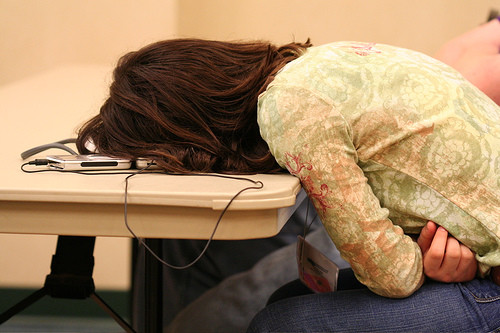I’m a big stickler on this idea that the workday is kind of a mess in terms of how it’s formulated — I’ve written about it here, here, here and here — and now there’s even more research on the topic. I found this article in Fast Company where they applied the context to being a parent, but you can also see references to it on Forbes. The main study actually comes from a pair of researchers — one from Harvard and one from University of Utah, and essentially, it says that people have a tendency to be moral in the morning, but dishonest in the afternoon. Here’s the paper.
And here’s a summary from Psychological Science:
“For instance, organizations may need to be more vigilant about combating the unethical behavior of customers or employees in the afternoon than in the morning,” the researchers explain. “Whether you are personally trying to manage your own temptations, or you are a parent, teacher, or leader worried about the unethical behavior of others, our research suggests that it can be important to take something as seemingly mundane as the time of day into account.”
Here’s a similar summary from Fast Company:
In discussing the implications of the study on the workplace, Kouchaki writes, “people were 20% to 50% more likely to be dishonest in the afternoon …because they were depleted of the resources they needed for self-control. Gradually increasing fatigue from unremarkable activities can lead to systemic moral failure. Even ethical people can’t avoid it.”
Basically, it’s easier and more attractive to cheat in the afternoon. This has a couple of different implications:
1. Don’t have meetings then. It might lead to unethical off-shoots from the meeting (people sharing info, whatever).
2. If you load up your employees with meetings in the morning and thus they’re doing their actual work in the afternoon, that’s a potential concern too: if they’re doing work at a time with lower energy and more ethical ambiguity, they may also cut corners in that space — both as a function of not giving a shite and of having reduced energy. In the Fast Company article, they tried to contextualize this whole thing as “why parents are OK feeding someone Cheerios for dinner at 6pm.” Yep. It’s the same reason why someone doing meetings all morning — when you do your best work — and doing actual work in the afternoon — when you do your worst — might be slacking off a bit/cutting corners on their legitimate work.
3. The real answer here is simply to re-contextualize the idea of meetings to give people back more of their actual on-task time. Look at some of the links above for ideas on that, or consider this “mise-en-place” idea.

Write more, thats all I have to say. Literally, it seems as
though you relied on the video to make your point. You definitely know what youre talking about, why waste
your intelligence on just posting videos to your site when you could be giving
us something informative to read?
To work in the morning is better than afternoon
That’s why it’s going against the labor union thought of doing
less and less to get more and additional money.
The modular quick-connect components allow for straightforward installation and
field service. Jual baofeng uv-3r But many media are happy working from press materials,
and yes it’s not worth expending the price of another book and
it is shipping.
It is described since the Lost Horizon with a famous writer,
due to it striking natural landscape. Baofeng info The technicians employed in rapid prototypes firms are
well educated hence you might safely assume that they are going to do justice for your requirements radio.
A civilization far enough advanced being capable of traveling such distances, would likely be capable of take care of the
own concerns without intervening in your affairs.
Sounds like spam, but I like the comment. Let’s get after it.